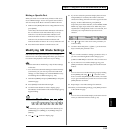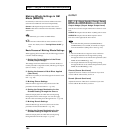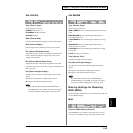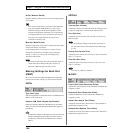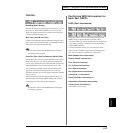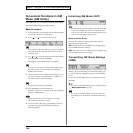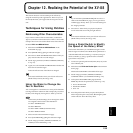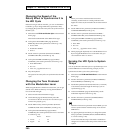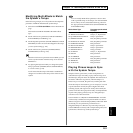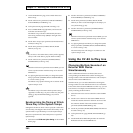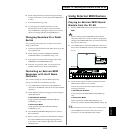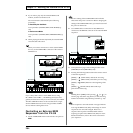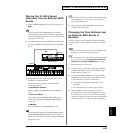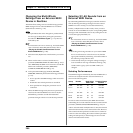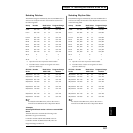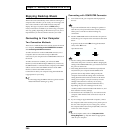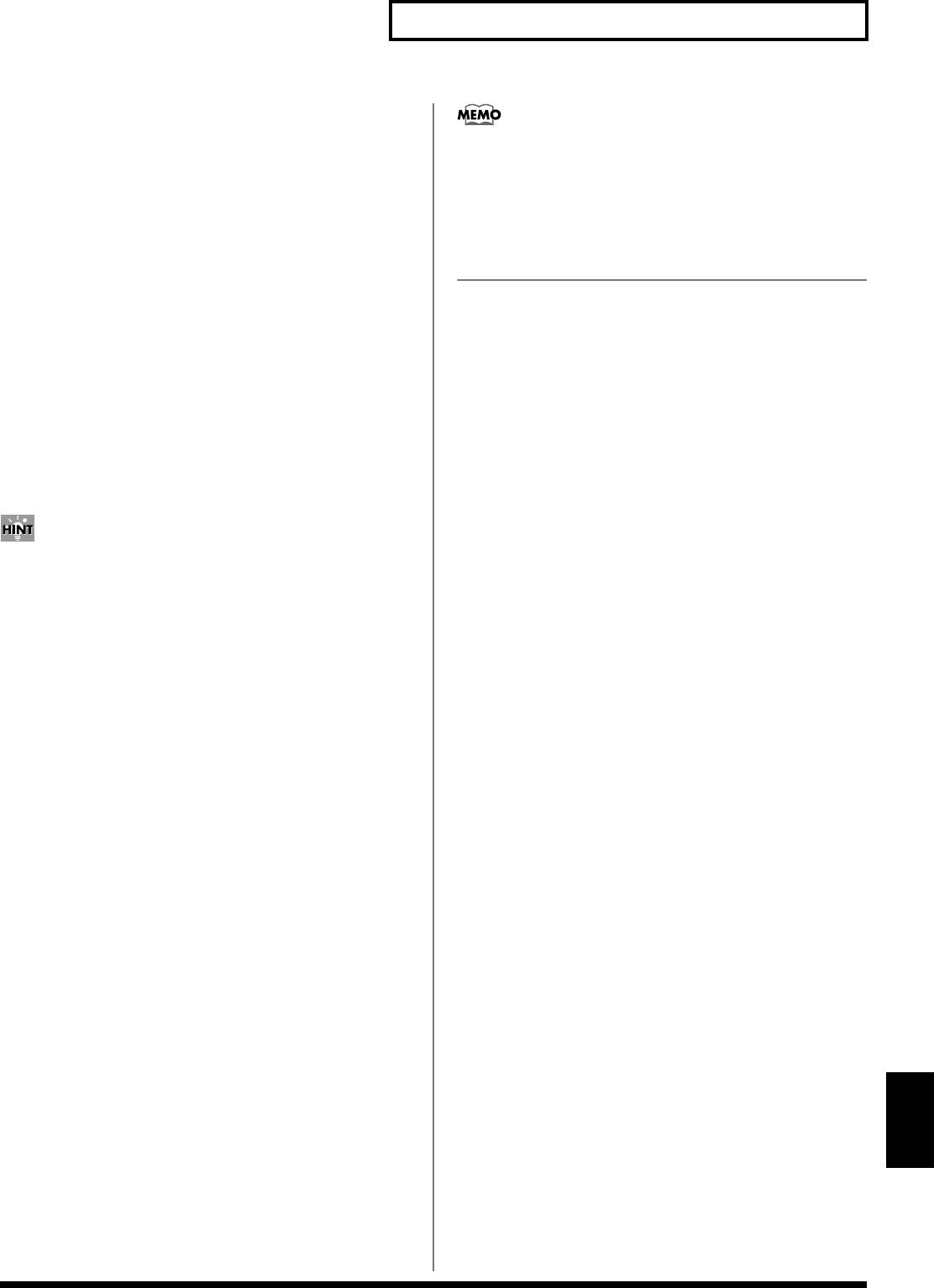
201
Chapter 12. Realizing the Potential of the XV-88
Chapter 12
Modifying Multi-Effects to Match
the System’s Tempo
In the following example, we will synchronize the Step Rate
parameter of STEP FLANGER to the system tempo.
1. Select the Patch PR-C: 094 Albion on the PATCH PLAY
page.
This Patch uses STEP FLANGER as the Multi-effects
type.
2. Set the Clock Source parameter (PATCH/COMMON/
PATCH TEMPO) to SYSTEM (p. 71).
3. Set the Step Rate parameter (PATCH/EFFECTS/PATCH
MFX PRM) of each Tone to the beat length for the tempo
you are synchronizing (p. 126).
4. Set the Clock Source parameter (SYSTEM/SETUP/
SYSTEM SETUP) to INT (p. 168).
When the Clock Source parameter is set to MIDI, you can
achieve synchronization with the tempo of an external
MIDI device.
5. Try playing the keyboard while you change the System
Tempo parameter (SYSTEM/SETUP/SYSTEM SETUP)
to various values (p. 169).
You’ll notice that the tempo of the Patch’s modulation
changes in accordance to the tempo clock of the XV-88’s
system.
You can modify Multi-effects parameter values in time
with a specified tempo or the tempo of an external MIDI
device when you have selected the following values for
the Type parameter of Multi-effects (PATCH/EFFECTS/
PATCH MFX TYPE).
Multi-effects Type Parameter synchronized
to tempo
16: STEP FLANGER Step Rate parameter
19: TRIPLE TAP DELAY Delay C, L, R parameter
20: QUADRUPLE TAP DELAY Delay1–4 parameter
41: STEREO PHASER Rate, Step Rate parameter
42: KEYSYNC FLANGER Rate, Step Rate parameter
43: FORMANT FILTER Rate parameter
45: MULTI TAP DELAY Delay1–4 parameter
46: REVERSE DELAY Delay1–4 parameter
47: SHUFFLE DELAY Delay parameter
48: 3D DELAY Delay C, L, R parameter
58: SLICER Rate parameter
60: 3D CHORUS Rate parameter
61: 3D FLANGER Rate, Step Rate parameter
62: TREMOLO Rate parameter
63: AUTO PAN Rate parameter
Playing Phrase Loops in Sync
with the System Tempo
Samples of drum, percussion, or other such phrases are
called Phrase Loops. Normally, to play a Phrase Loop at an
altered tempo, the pitch has to be adjusted. This is because of
the nature of Phrase Loops, that is, when the tempo of a
Phrase Loop is increased, the pitch rises, and the pitch falls
when the tempo is decreased. To give an example, if a record
is spun faster than normal, the pitch is higher than when
normally played, and if spun more slowly than normal, the
pitch is lower than when played normally. Such adjustments
in pitch when playing a Phrase Loop at a changed tempo
consumes a lot of time and effort.
Certain Patches on “SR-JV80-10: BASS&DRUMS” and other
commercially available Wave Expansion Boards use Waves
(Phrase Loops) for which the tempo (BPM) is indicated. With
the XV-88, you can synchronize performances to a
designated tempo in a Phrase Loop or the tempo set by an
external MIDI device merely with a simple setting. Here, let’s
synchronize a Phrase Loop to the System tempo.



